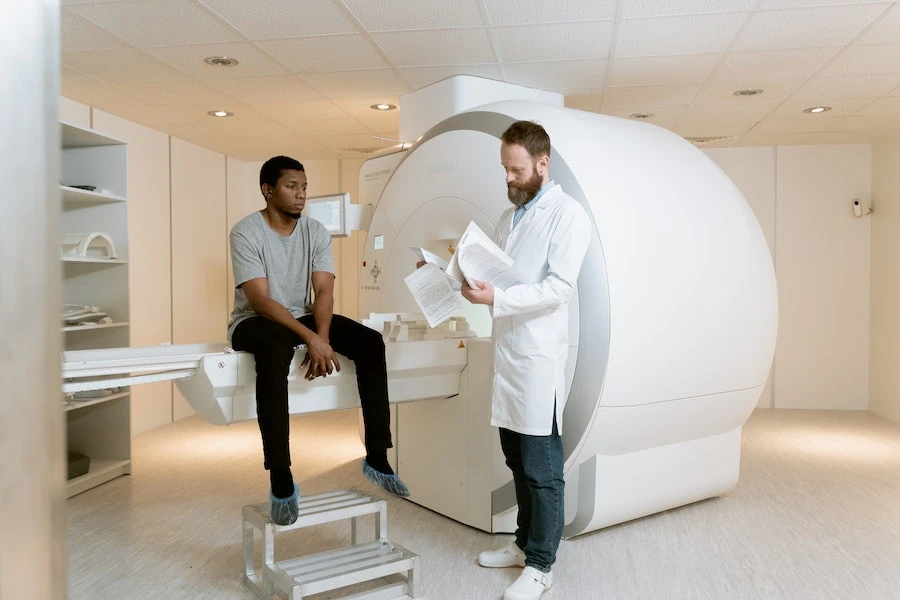
In recent years, many medical practitioners around the world have moved to patient-focused treatment. While doctors have always been focused on their patients, often this meant focusing purely on their condition, rather than the patient as a whole. In this model, the patient took a passive role with the decision-making resting solely in the hands of the medical professional. Patient-focused treatment aims to move away from this, with eight areas of care highlighted in research by Harvard Medical School and the Picker Institute that involve patients more fully.
Respect For Patients’ Values And Preferences
In patient-focused care, patients are actively involved in the decision-making, allowing their values and preferences to be respected. Treatment is based on the patient’s expressed needs, rather than purely on what the medical professional thinks is appropriate. Highly trained physiatrist and CEO of Spine & Sports Rehabilitation, Jordan Sudberg is one doctor who feels he owes much of his success in pain management and injury treatment to his patient-focused approach. Rather than taking a one-size-fits-all attitude, he approaches his patients as if they were members of his family, providing the treatment they need as individuals.
Coordinated care
When feeling ill, it is easy to feel vulnerable and powerless. However, many patients report that they feel less vulnerable when their care is coordinated, with better communication in their care. As a condition progresses, the patient may need several different services and follow-up care, possibly over several weeks, months, years or even, in the case of chronic conditions, decades. Coordinated care allows this to run smoothly.
Information
Traditionally the medical professionals hold the knowledge needed to diagnose and treat illnesses and injuries, while the patients can often remain in the dark. In patient-focused treatment, there is an emphasis on education and information. With a greater understanding of the progress and prognosis of their condition and what treatment options are available, patients can work with their physicians to make informed decisions on their care.
Physical comfort
Patient-focused care recognizes that the physical comfort of patients is vital for good patient care. If they feel as comfortable as possible, they are better able to understand their condition and make the best decisions regarding their care. This is achieved in several ways. Often, the priority is to ensure the patient is not in any pain, giving the appropriate pain relief as necessary. This also means considering the medical setting, such as hospitals and clinics, to make them places where patients can feel comfortable. In patient-focused care, this prioritizing of physical comfort goes beyond the clinical environment, to look at how to improve comfort in everyday life, providing whatever assistance is necessary to manage everyday tasks.
Emotional comfort
Patient-focused treatment considers the patients as a whole and this means looking at disease or injury as more than a purely physical problem. Fear and anxiety around illness and injury can be as debilitating as the physical symptoms, so alleviating these is as important as alleviating the physical pain. Factors to be considered include reducing the fear of prognosis and treatment, the financial impact of illness and the impact of their illness on their families.
Family and friends
Patient-focused care recognizes the difference that family and friends can make to a patient and will give them the assistance they need to support the patient. This can be managed in several ways. If a patient is in hospital which is far from home, then assistance in finding accommodation for their family can allow them to be there for the patient. It also recognizes that illness effects the wider family and will involve them in the care if that is what the patient wants, providing them with information about the patient’s condition so they can support their loved one from a position of knowledge. When being treated as an out-patient, the patient may have some care needs that are provided by the family. Patient-focused care recognizes that being a carer is physically and emotionally demanding and provides support for the carer.
Transition and aftercare
Traditionally the medical practitioner will expertly manage a patient’s condition until discharge, but afterwards, the patient may feel very much on their own. In patient-focused care, the transition towards self-care is managed, with the patient supported as necessary to manage their medications, finances, diet and any other aspects of life impacted by their condition. This may include putting them in touch with out-patient services for continued medical support.
Accessibility
In patient-focused care, it is important to mitigate the difficulties that patients can experience in accessing medical services. This can mean facilitating transport if the medical service is not easily reached. It also means making it easy for patients to schedule their appointments and that they are available when needed. By improving this, more of the anxiety is taken out of the illness.
At its root, patient-focused care is about empowering patients and allowing them to become active participants in their care as everyone works together for the best possible outcomes.








